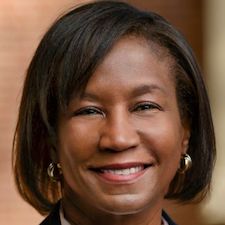 Laurie A. Carter was named 17th president of Lawrence University in Appleton, Wisconsin. When she takes office on July 1, she will be the first African American to lead the university in its 174-year history.
Laurie A. Carter was named 17th president of Lawrence University in Appleton, Wisconsin. When she takes office on July 1, she will be the first African American to lead the university in its 174-year history.
Lawrence University enrolls lightly more than 1,400 students according to the most recent data available through the U.S. Department of Education. African Americans make up 6 percent of the student body.
Since 2017, Carter has been president of Shippensburg University in Pennsylvania. She spent 25 years in leadership positions at The Juilliard School, a prestigious private performing arts college in New York City. She was vice president and general counsel and executive director of jazz studies when she left Juilliard in 2013 to lead the nation’s third-largest arts education department at the New Jersey Performing Arts Center. She later joined Eastern Kentucky University as executive vice president and university counsel.
“As a sitting president, I am well aware of the challenges facing higher education, but I know the Lawrence community is ready to work together to continue the traditions of excellence while ensuring a bright future for the students, the university, and the community,” President Carter said.
A native of New Jersey, Carter attended Clarion University of Pennsylvania, where she received a bachelor’s degree in communications. She received a master’s degree in communications from William Paterson College in New Jersey and earned a juris doctorate at Rutgers University in New Jersey.











